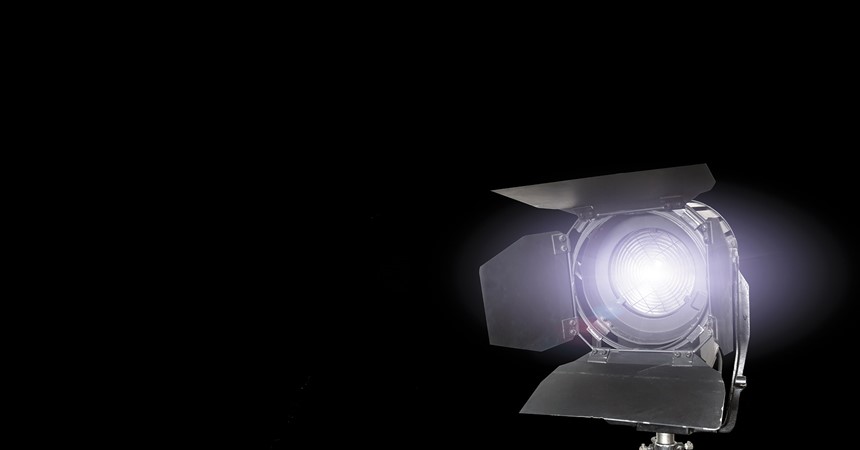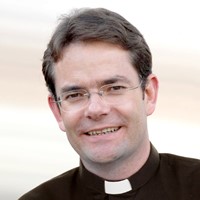This is one of the angriest films you will ever see.
In the Bible we hear about righteous anger, where God or humanity realises something is so wrong and sinful that ‘holy anger’ is the first and right response. At its best in the scriptures this anger leads to justice, making things right.
Spotlight is an occasion for holy, righteous anger and every adult Catholic should see it. Not because it is easy watching, but because it is necessary watching. The time to look away has gone.
The first meaning of this film’s title refers to the team of award-winning investigative journalists at The Boston Globe. In the late 1990s they become aware of a number of Catholic priests who has been accused of child sexual abuse. In the early days of their investigation they unearth evidence that the Catholic Archdiocese of Boston has gone to extraordinary lengths to cover up the activities of these paedophile priests, and silence victims through payoffs, legal threats and personal intimidation.
The team starts out believing they are looking at isolated, criminal individuals: the “rotten apple” theory. Within a year and with the help of Mitchell Garabedian (Stanley Tucci), the only lawyer in Boston prepared to represent victims against the Church, they discover there have been credible or accepted allegations against 90 priests, 6% of the total number of clergy in the archdiocese. Some of these men were moved to various other dioceses in the USA where they raped and abused other children. In 2011 Boston’s Cardinal O’Malley made public the full list of offending clergy: 159.
The USA remains the most publicly religious western nation on earth. In 2014 70% of the whole population said they were Christian. 51% are Protestant while 24% are Catholic. While one or two other countries might still have higher rates of public allegiance, the USA remains the largest practising Christian developed nation in the world, where around 28-32% go to church once a month or more. This is background to the power of religion in the USA. Even now, after the despicable scandals of recent years, it can be hard for people who have never lived in Boston or Chicago or New York to appreciate the social and political power churches continue to wield, much of it used in support of very good outcomes in education, social services and healthcare. This film is about the corruption of this power.
The Spotlight team increasingly become aware that the stakes are escalating, that they “are going after the system” with connections to nearly every other powerful institution in the city.
By 2001 rumours of the newspaper’s investigation emerge. Some powerful men want to close the investigation down. The journalists are personally targeted and harassed. The paper and its reporters press on. “They knew and they let it happen! To KIDS! Okay? It could have been you, it could have been me, it could have been any of us. We gotta nail these scumbags! We gotta show people that nobody can get away with this; not a priest, or a cardinal or a freaking pope!”
From June to December, 2002, The Boston Globe published 13 lengthy reports about the crimes and their cover-up, culminating in the resignation of Cardinal Law as Archbishop of Boston on 14 December, 2002.The paper, and its first-ever Jewish editor, came under sustained attack for being “anti-Catholic”. For their fearless and outstanding work, the Spotlight team won the Pulitzer Prize for Journalism for Public Service in 2003.
The second more obvious meaning of spotlight is the pool of light wherein the watcher’s attention is singularly focused upon one place on the stage. In the history of the theatre, depending on what happens in that prolonged, harsh pool of exposure, careers and reputations have been made or destroyed. There is nowhere to hide.
This film not only casts its forensic gaze against the Catholic Church and other civic institutions in regard to child sexual abuse, but also on itself. Since 1976 victims, their families and lawyers had been telling The Boston Globe about the crimes, the criminals and the scale of the cover-up. The editorial staff could not or would not see what was in front of them. That last phrase is literally true.
Soberingly for this Jesuit reviewer, one of the cases this film explores is that of a Jesuit priest who teaches at our order’s Boston College High School. In the course of the newspaper’s research, accusations of sexual abuse emerge from several victims against this priest. The head of the Spotlight team, Walter “Robby” Robinson (Michael Keaton), is an old boy of BC High. He knows the priest, and personally investigates the claims. He then confronts the school administrators. BC High is directly across the road from The Boston Globe. For decades, one side of The Boston Globe’s story was on the other side of the street. There is plenty of blame to go around in this scandal.
Spotlight’s screenplay is so richly dramatic that this film does not need gimmicks to communicate its power. The acting is universally compelling, as is the film’s production, design and editing. It has already won awards from the New York and Los Angeles Film Critics, the Catholic SIGNIS jury prize at the Venice Film Festival. It was nominated for three Golden Globes and has been nominated for six Oscars.
Importantly the present Catholic Archbishop of Boston, Cardinal Sean O’Malley said, “Spotlight depicts a very painful time in the history of the Catholic Church in the United States and particularly here in the Archdiocese of Boston….The media’s investigative reporting on the abuse crisis instigated a call for the Church to take responsibility for its failings and to reform itself − to deal with what was shameful and hidden − and to make the commitment to put the protection of children first, ahead of all other interests. We have asked for and continue to ask for forgiveness from all those harmed by the crimes of the abuse of minors…” Vatican Radio said that in this film the Globe reporters “made themselves examples of their most pure vocation, that of finding the facts, verifying sources, and making themselves − for the good of the community and of a city − paladins of the need for justice.”
All this said, there is a few troubling aspects to this film, none of which take away from its singular power. On seeing it, one could be forgiven for thinking The Boston Globe was the first media outlet to investigate these heinous crimes and their cover up. Led by Canada, and then the UK, Ireland and Australia in the first half of the 1990s, serious allegations and investigations of the Catholic Church soon led to the beginnings of systematic responses and later judicial reviews. Secondly, while lawyers come in for a general pasting in this film, the police are conspicuous by their almost total absence from the narrative. There has to be a story there and maybe it is the subject of a future film.
Finally while Spotlight’s profile makes it the most prominent film so far, it is not the first or only film, television drama or documentary on this shameful subject. Heaven Help Us (1985), The Boys of St Vincent (1992), Song for a Raggy Boy (2003), Twist of Faith (2004), Mal Education/Bad Education (2004), Our Fathers (2005), Deliver Us From Evil (2006), Hand of God (2006), Sex Crimes of the Vatican (2006), Deliver us from Evil (2006), X Files: I Want to Believe (2008), Doubt (2008), Oranges and Sunshine (2011), Mea Maxima Culpa: Silence in the House of God (2013), and Calvary (2014) all explore in some measure Catholicism’s criminal dysfunctionality in regard to child sex abuse by clergy and its cover-up.
It may once have been possible for Catholics to argue that this shameful and criminal chapter is “a media beat-up from an anti-Catholic press” or “it’s just a few sick individuals”, but the Royal Commission into Institutional Responses to Child Sexual Abuse puts paid to those claims. Even though we now know that there is pandemic of sexual abuse of minors - in family homes, in every religious group as well as all welfare and government institutions that have had long-lasting dealings with children - that affords us no comfort or excuse. For as Francis Sullivan, the head of the Church’s Truth Justice and Healing Council said on 17 December, 2015:
“At the end of another confronting and shameful public hearing for the Catholic Church the heavy sense of failure pervades our community. It is becoming an all-too-predictable scenario, in that in every case study ineptitude, maladministration, cover-ups and corrupt practices have been revealed. This miserable history cannot be denied, nor can it be rationalised away. The very fact that a faith-based institution would perpetuate such evil is incomprehensible. But it has – and now the time for reckoning has well and truly arrived. As witness after witness fronts the Royal Commission the pretence falls away. At times the Commission's patience is clearly tested but at least the stark realities are made plain for all to see….Many have said that this Royal Commission is vitally important for the future of the Catholic Church in Australia. Quite clearly the Church has not been able to be as honest with itself as it has had to be in these hearings. Now the challenge is to explain why this tragic scandal occurred and how it can be prevented from ever happening again….”
Why go and see this very tough and demanding film? Because victims and their families deserve it.
May it make us as “mad as hell” andnot “take this anymore” and enable that holy, righteous anger to demand complete openness, transparency and honesty from our own community. That might just be the start of bringing God’s justice and healing to survivors.
Whether we like it or not, now we are all in the spotlight – and there is nowhere to hide.




























































































